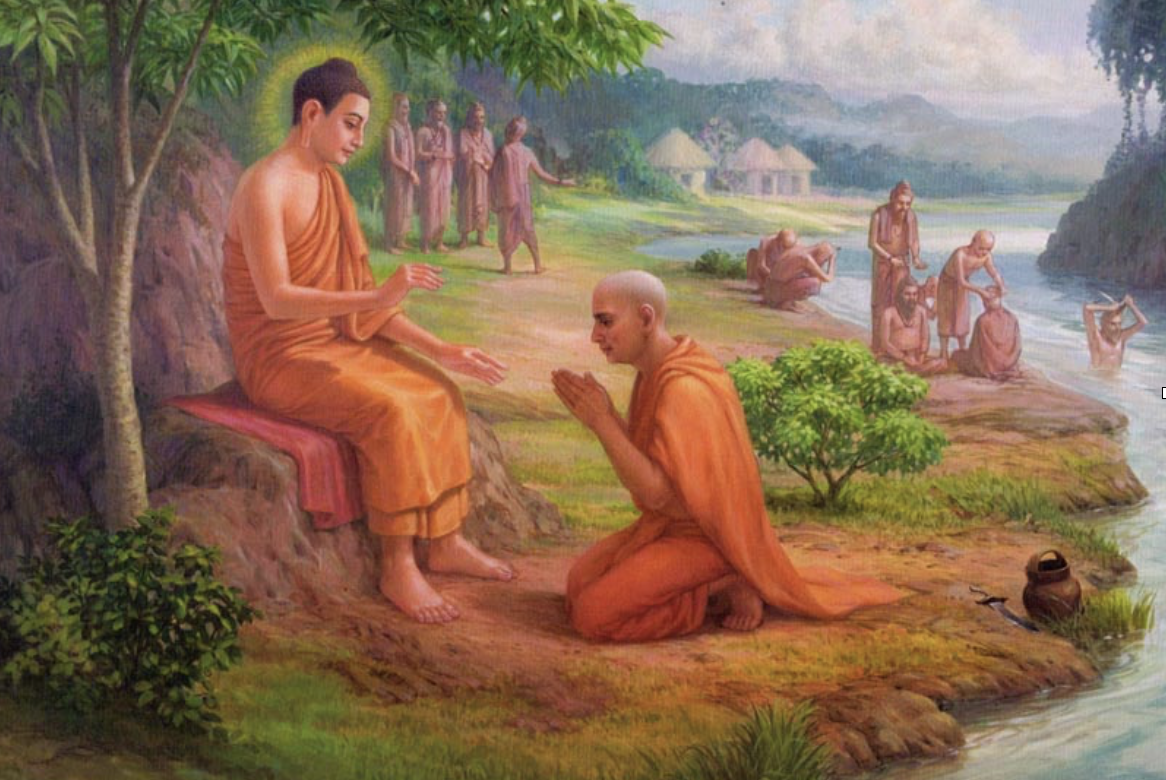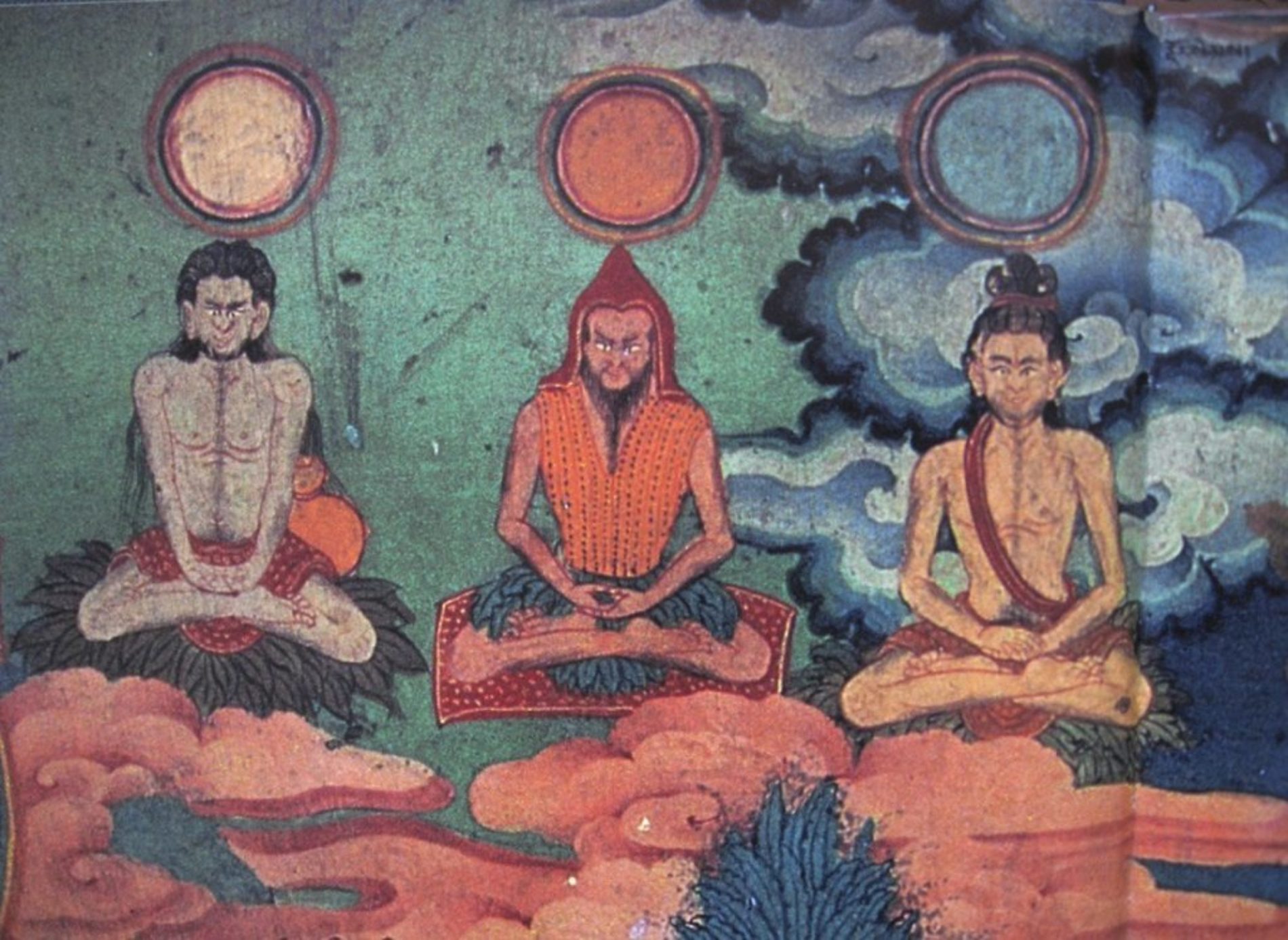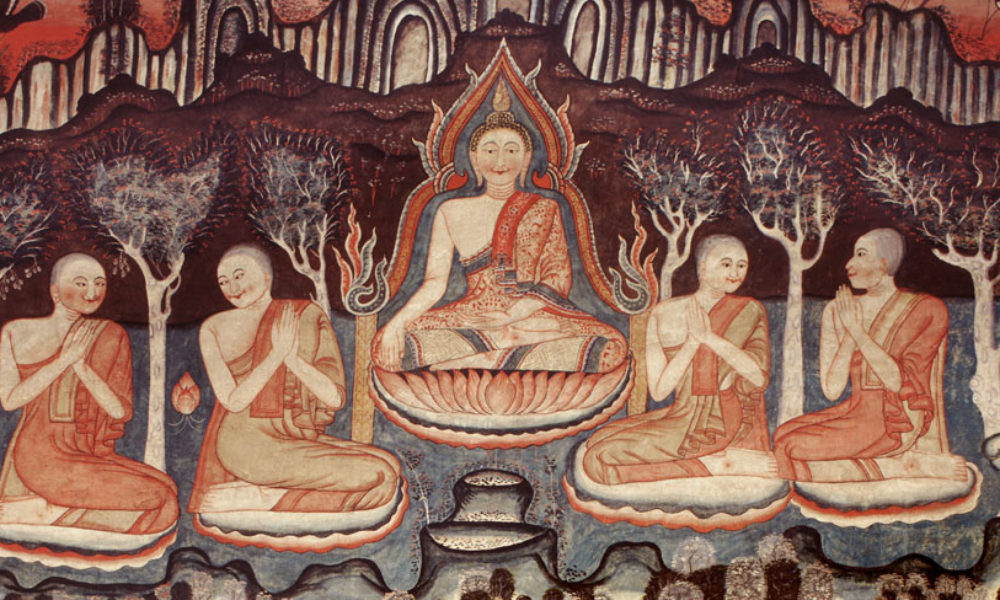This article serves as an introduction to the teachings on the seven contemplations, an ancient system of mind-training (lojong) teachings that has been preserved as part of a rare set of instructions on Dzogchen Nyingma to train the mind.
Lojong (Tibetan: བློ་སྦྱོང་) is a contemplative practice in the Tibetan Buddhist tradition, which makes use of various lists of aphorisms or slogans for contemplative practice.
The Great Master of Oddiyana taught: “This isn’t just a matter of words. You have to practice … [the seven mind trainings]. If you don’t, it will be just as though you are plagued by hunger and thirst yet do not partake of the food and drink you have in your hands. Simply knowing that the food and drink will help you won’t do a thing. It’s clear that you need to actually eat and drink!”
What is Dzogchen?
Dzogchen is primarily taught in the Nyingma and Bön traditions in Tibet and was later adopted into various Kagyu schools and the Gelug school as well.
Dzogchen can be translated from Tibetan as ‘Great Perfection.’ The goal of Dzogchen is to attain rigpa or “awareness,” and integrate it into everyday life.
Dzogchen presents a unique chance for us to achieve full enlightenment by helping us recognize that we’re already enlightened beings. It teaches us that the pure awareness within ourselves and the world is our fundamental nature, just waiting to be rediscovered.
To begin practicing Dzogchen, you need to study the outer preliminaries: read and contemplate the preciousness of human life, impermanence, the sufferings of samsara, karmic cause and effect (ethics), the benefits of liberation (renunciation), and establish a healthy relationship with a qualified spiritual teacher.
The second stage involves the inner preliminaries, which include taking refuge (seeking safe direction), prostration, generating bodhichitta based on love and compassion, Vajrasattva purification, offering mandalas, chod offering of one’s body, and guru-yoga.
First mind training
Impermanence
“According to Buddhist teachings, every being is a composite of mind and body. Our mind is who we are. Our body is a precious but temporary abode where our mind lives and functions as long as we are alive. As soon as we die, our mind, or consciousness, leaves our body and takes rebirth. Whether this rebirth is happy or painful depends solely on whether the effects of our past karmic deeds are positive or negative. The important point is that if we train our mind on the path of profound teachings, such as Dzogchen, our mind will become free from emotional flames and karmic bondage and will awaken to its innate wisdom”.
-Steps to the Great Perfection: The Mind-Training Tradition of the Dzogchen Masters by
Jigme Lingpa.
The first of the 7 mind trainings of Dzogchen is impermanence – the constantly changing nature of things.
The four seasons come and go. Day and night come and go as well, changing moment by moment. Our bodies are changing day by day. You will die one day, as every single being on earth. When we finally realize that everything is impermanent, our mental attachments, expectations, and aversions fade away.
“Oh, Bhikshu, every moment you are born, decay, and die.”
— The Buddha
Second Mind Training
Karma
“Therefore we can be our own perfect guide. There is no external thief of our happiness. Unhappiness and suffering are created by ourselves when we allow ignorance and the other delusions to influence our actions.”
The Four Noble Truths
— Lama Zopa Rinpoche
Read full article about Karma – here
Third Mind Training
Suffering and Compassion
Read our article about suffering – here
We spend our entire lives preoccupied solely with the eight worldly concerns (pleasure and pain, gain and loss, praise and blame, fame and infamy). We think we need something in order to be happy. When you get one thing, you’ll need something else and something else.
Meditation is the best practice to understand and overcome suffering.
Contemplate on the sufferings of the 6 realms of existence:
- Hell – extreme hot or cold, the torment of your own intense anger and hate.
- Hungry Ghost: Great craving and eternal starvation.
- Human: Frustration, consumed by their desires.
- Animals: Ignorant complacency and dullness.
- Demi-Gods: Fueled by ego and aggression, jealous or warring gods.
- Gods: Pride
“The day you die, all of the things that you have done in your present life will do you no good. This includes protecting your loved ones, thwarting your enemies, engaging in farm work, seeking to profit from business, pursuing material gain and fame, getting caught up in attachment and aversion, benevolently counseling others, chasing after influence and a good reputation, making friends and enjoying material pleasures with your loved ones, and making a home for yourself. Indeed, everything that you have done in the past is now nothing more than a memory. Like last night’s dream, it won’t come again. What you experience today is like this evening’s dream, while all that you will do tomorrow will be like tomorrow night’s dream. What a waste to have spent your time on pointless pursuits: getting caught up in attachment and aversion, quarreling with others, hoping to hear pleasant things and not to hear anything unpleasant, pursuing pleasure and avoiding pain, accumulating and hoarding things, and so on.”
The Mind-Training Tradition of the Dzogchen Masters
— Jigme Lingpa
The Guru
Fourth Mind Training
The essence of this mind training is that the only way you will be able to grasp the true Dharma is by serving a teacher, the root of the path.
The Fifth Mind Training
Meditation
You’ll receive a wealth of information and instructions from teachers, lecturers, and the books you’ve read. However, without contemplating or meditating on this knowledge, you’ll gain no benefits.
To practice Dzogchen, guidance from an enlightened teacher is necessary. Afterward, you must meditate without distractions, laziness, or attachment.
Set up a proper motivation:
“I will meditate every day! I won’t fall prey to laziness and sloth for even a moment! I won’t procrastinate, concerning myself with food, future plans, hopes, or fears! I won’t let myself get lost in a state of apathy!”
The Method of Meditating:
To avoid distraction from sensory cognition, meditate in total darkness and total silence with three immovables:
- Immovable body – with body straight, hands either in the meditation pose in our laps or lightly resting on the knees
- Immovable senses – with eyes neither closed nor wide open, but gazing naturally in front
- Immovable mind – not actively thinking, with no thoughts of the past or future, and with no analysis. We just rest in the present moment of awareness, fresh and uncontrived, without being self-conscious about what we are doing. In other words, even if a thought arises, we do not follow it out.
Start meditating on the Six Outer Preliminaries:
- The freedoms and advantages of precious human rebirth
- The truth of impermanence and death
- The workings of karma
- The suffering of living beings within samsara
- Benefits of Liberation
- Attending a Spiritual Master
If you are serious about practice, you might consider practicing Ngondro.
The Sixth Mind Training
Dealing with negativity
Negativity arises from our attachment, ignorance, and fixation on the five sense objects we tend to disregard. Engaging in negative actions leads to rebirth in lower realms.
If we desire happiness but continue to commit harmful deeds, we will endure suffering and remain trapped in Samsara. You need a strong motivation to abandon negativity once and for all because it is a cause and source of suffering for you and all sentient beings.
Non-virtue or negativity is:
-
- Killing. Taking the life of any sentient being. Subdivided into three categories: the intention to kill; the act of killing; the results.
- Stealing. Taking objects that do not belong to you. Robbery.
- Sexual Misconduct. Sexual relationships with someone who is upholding the vow of celibacy. Someone who is married (or in a committed relationship), with a relative. Having sexual intercourse in front of the sacred object is not permitted.
- Lying. Telling something that is not true. Pretending that one has enlightened qualities, and fully understands Dharma (when one does not), fake gurus.
- Harsh words. Proclaim the person’s faults openly, saying harsh words in order to hurt another person.
- Divisive speech. A speech that causes people to dislike one another. Something that creates a division.
- Gossip.
- Wrong views. Believe in false doctrines
- I ll will/Hatred. Intense hatred, obsession with harming other sentient beings.
- Covetousness. The strong desire for another’s wealth and possessions.
The Seventh Mind Training
Wisdom
The best way to train the mind towards enlightenment is the path of concentration, developing non-duality (non-conceptuality) and emptiness.
Using this path one can develop profound control of the karmic energies movements.




